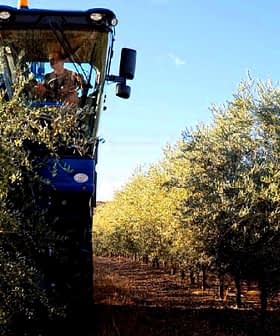Investigation Opened in Spain for Adulterated Olive Oil Exported to Italy
Spain received an international judicial cooperation request from Italy after the country conducted several investigations which confirmed the falsification of oil products from Andalusia.
A company in Córdoba, Spain, along with other entities in Andalusia, are under investigation for allegedly exporting adulterated olive oils to Italy to be sold as authentic extra virgin olive oil. A report for the investigation has been filed by La Fiscalía Provincial de Córdoba.
Spain received an international judicial cooperation request from Italy after the country conducted several investigations which confirmed the falsification of oil products.
Preliminary procedures for a complete investigation of the possible crime against consumers were initiated late last year by the Públic Minister. In the wake of the current case, a report allowing for the continuation of the preliminary procedures to investigate three cooperative companies that are suspected of selling adulterated oils was remitted by the Jaén Public Prosecutor’s Office, and the chairman of the municipality of Villacarrillo.
The adulterated oils were sold in Italy by various operators after they were processed through a process of deacidification and deodorization which allowed the products to pose as extra virgin olive oil or lampante olive oil to be exported, according to a document obtained by Europa Press.
The crime may have been occurring for years since authorities in Italy claim to have detected a similar case in 2013 and have also requested for judicial cooperation to investigate three other companies in the Tarragona, Sevilla and Córdoba provinces.
The investigation found that the olive oil provided by the Spanish suppliers to at least nine clients, stored in cistern trucks, arrived in Salerno disguised as extra virgin olive oil. The oils were submitted for analytical inspection and six of the products analyzed turned out to have irregularities in respect to organoleptic requisites.
In five other occasions, technical treatments that are not allowed in the market, such as the process of deodorizing, were suspected to have occurred when the tests that were analyzed signaled anomalous factors.
According to a former investigation, it was deduced that the Spanish companies of Córdoba and Almería were likely connected.
Both companies from Córdoba and Almería that were involved in the deceit are one and the same in the eyes of Italian authorities. They are convinced that the Spanish supplier intended to disperse the effects of the inspection that were first analyzed in the various shipments.








